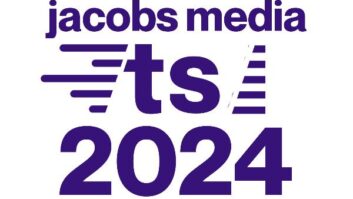
Radio in Malawi is a major source of information to everyone, including youths. Credit: Tiwonge Kumwenda. BLANTYRE, Malawi — The radio industry in Malawi is flourishing.
Until 1998, there was no independent radio in this southern Africa country. But things changed in October that year when 101 Power FM hit the airwaves, which were previously monopolized by the state broadcaster, Malawi Broadcasting Corp.
101 Power came on the air after the Malawi Communications Regulatory Authority liberalized the airwaves in response to a change in country’s political climate from a one-party to a multiparty state. This saw other broadcasters including Capital Radio, MIJ FM, Radio Maria, Radio Islam and Zodiak Broadcasting join the bandwagon, with unique, innovative programming, targeting their respective audience.
INFORMATION DISSEMINATION
Two of these private radio stations in particular, ZBS and Capital Radio, are giving MBC a run for its money, as they are starting to be viewed as more credible sources of news. Zodiak broadcasts in English, and Chichewa and is usually the station to broadcast the latest news. Capital Radio, which airs the latest hits, largely broadcasts in English.
Today Malawi plays host to more than 31 radio stations, of which 14 are community radio broadcasters and eight are religious in nature. Most of them broadcast specifically to a small geographical community, although Radio Islam, Transworld Radio and Radio Maria broadcast within all the three regions of the country. Radio Maria has the second biggest reach after MBC. BBC Radio is also relayed to the three major cities of Blantyre, Lilongwe and Mzuzu.
In 2012 MACRA awarded 15 licenses, which are part of the above 31 stations and then another 19 radio licenses in June 2013, meaning the addition of 34 new radio licenses within just two years. The latest batch of 19 has six months to begin broadcasting and if they meet the deadline, will bring the total number of radio stations in the country to about 50.

Kondwani Kalambule, head of engineering at Capital Radio checks the sound levels in the on-air studio. Credit: Lameck Masina Among the most recent lucky radio broadcasting license winners are Waga FM, Chirundu FM, Radio Dinosaur FM, Neno FM, Radio Bembeke FM, Mzati FM, Likoma Community Radio, Nthalire Community Radio, Ufulu FM and Yoneco FM. Information Minister Moses Kunkuyu says the radio boom is an indication of the government’s commitment to see a free flow of information, from the community to national level so that people are well informed so as to make educated decisions. He says this is crucial, particularly since Malawi is expected to hold tripartite elections in 2014 where the voters will choose the councilors, parliamentarians and president.
“Malawians need to make informed decisions more than ever before considering that we have the tripartite elections ahead of us and this is a fairly a new thing for Malawi,” said Kunkuyu. “We therefore need to promote massive civic education, starting from the households, the communities and moving right up to the national level. We are counting on the broadcasters who have been awarded licenses to channel these messages.”
STRICT DEADLINES
Kunkuyu also explained that the increasing number of radio stations further ensures the dissemination of information such as disease outbreaks in certain areas and how to protect one’s self as well as agricultural information (e.g. rain patterns and types of crops to plant).
He cited a “commendable job” by Mzimba Community radio station in northern Malawi, which he said is making an effort in creating social awareness and stimulating a sense of responsibility toward the environment by broadcasting information on organic farming, herbal plants and medicine in the local Tumbuka language.

Radio Islam covers live a religious event in Blantyre. Credit: Lameck Masina
Chairperson for the Malawi chapter of Media Institute for Southern Africa, Anthony Kasunda, applauded the government for promoting media pluralism, saying the development is a key milestone in the history of broadcasting in the country and that it also helps create employment for media professionals.
“MISA-Malawi is glad that the development will boost employment for media professionals and our expectation is that the license recipients will begin broadcasting within the stipulated timeframe,” said Kasunda.
Besides easing the communication gap, advertisers say the radio boom has helped reduce their budget spent on radio advertising.
“I remember in the past we were paying three times the current price for a 30-second slot. But now many radio stations will even run adverts on credit, which was not the case in the past when radio advertising was in a form of ‘cash and carry,’” said one advertiser based in Blantyre.
It is not clear if all license winners will be able to meet MACRA’s six-month deadline to hit the airwaves. And the organization seems serious about the impending deadlines (presumably in an attempt to ensure effective information dissemination well in advance of the elections) as it has again issued a reminder to the new awardees that it will revoke any licenses of those not broadcasting within the six months of license issuance.
Lameck Masina reports on the industry from Blantyre, Malawi.












